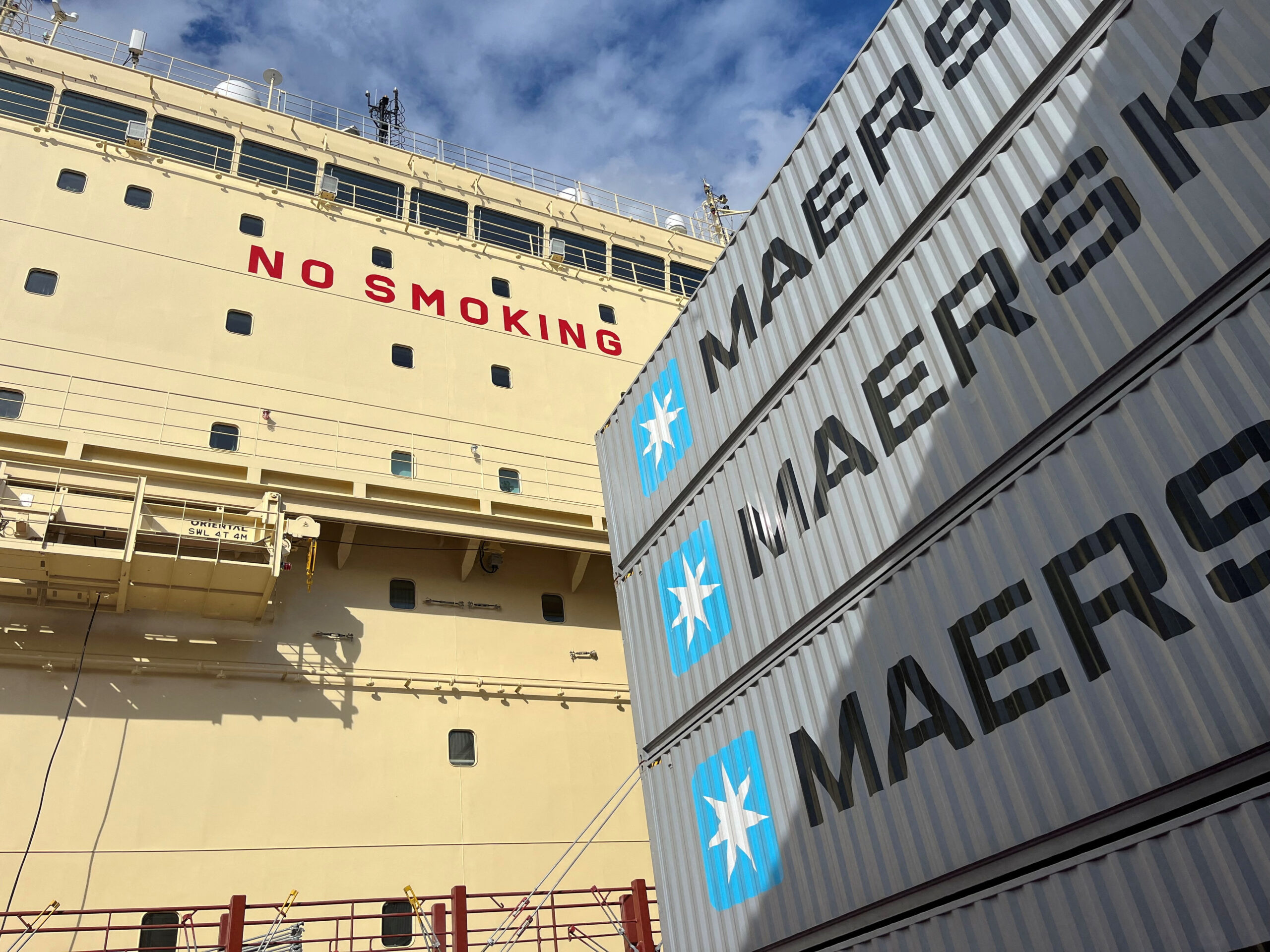5G in Africa: What’s its potential, Selasi Ahorlumegah?
Naa Oyoe Quartey
With its fast speeds and revolutionary potential, 5G stands out as a noteworthy milestone in the field of […]

Maersk, the biggest shipping company in the world, made a significant achievement on Thursday as it unveiled the world’s first container vessel powered by green methanol. This marks a pivotal moment for one of the world’s most environmentally damaging sectors.
Shipping is responsible for approximately 3% of global carbon emissions, a quantity equivalent to total carbon emissions of a country such as Japan. However, the decarbonisation of this sector has proven to be challenging. One key reason is the global nature of the shipping industry. Approximately 90% of the world’s traded goods are transported via ocean shipping, according to the Organisation for Economic Cooperation and Development (OECD). To achieve a global agreement, the support of virtually all nations is required, making negotiations extremely complex.
The newly ordered container ship, named Laura Maersk, is equipped with two engines: one utilising traditional fuels, and the other running on green methanol, a sustainable fuel source produced from biomass or captured carbon and renewable hydrogen. In practical terms, this innovative vessel emits 100 tonnes less of carbon dioxide per day compared to conventional diesel-powered ships. It’s a symbolic milestone in the energy transition, but this demonstrates that tangible progress can be achieved.
Maersk stated that Laura Maersk is the first step for the company, but also the first step for the entire industry of shipping. This vessel is the first of a larger order of 25 vessels scheduled for arrival in 2024, Maersk working toward achieving climate neutrality by 2040. While other shipping companies, like Evergreen, have also ordered similar vessels, their carbon neutrality targets are less ambitious compared to Maersk.
The discussion around a shipping tax exemplifies the difficulties in accelerating decarbonisation efforts on a global scale. In June, a group of 20 nations endorsed a plan for a tax on shipping industry emissions, but countries like China, Argentina, and Brazil opposed the idea. The implementation of a carbon tax was supposed to provide the right economic incentives for companies to embrace green transition.
Concerns have been raised about the availability of green methanol. This fuel is currently limited in supply and expensive to transport. Maersk has signed agreements with at least nine green methanol suppliers worldwide in an effort to encourage increased production.

With its fast speeds and revolutionary potential, 5G stands out as a noteworthy milestone in the field of […]

Let me take you on a captivating journey through my intriguing conversation with Antonia Azoitei, a versatile artist […]